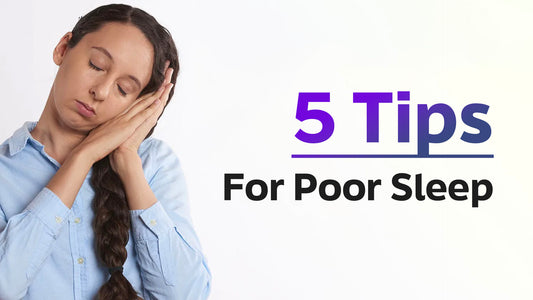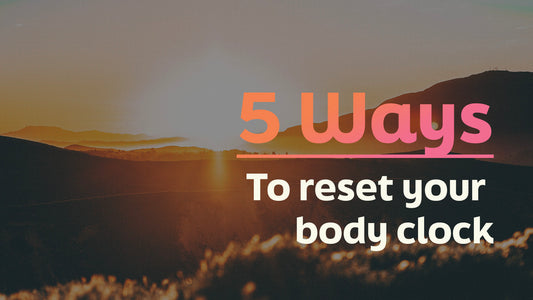Products containing caffeine are amongst the five most traded commodities on earth.
It is the most widely used (and abused) psychoactive substance in the world and the only addictive substance that we readily give to children and teenagers.
The reality is that we love caffeine, especially coffee.
There is little that can (or should) be done to change that, but with a little bit more awareness of your caffeine habits and some well-needed education on its potential side effects when over-consumed, we can be sure to enjoy our warm brew whilst still getting the best quality sleep possible.
Let’s start by busting some myths and identifying some home truths about caffeine.
Home Truth #1: Caffeine does not ‘give you energy’
Caffeine hijacks the receptor sites of adenosine, a chemical which naturally accumulates in our brain over the course of the waking day that causes us to feel a natural pressure to go to sleep.
Caffeine blocks the ‘sleep pressure signal’ that is created by the natural build-up of adenosine. This is the equivalent of putting your fingers over your ears to block out a loud sound.
It tricks us into feeling alert and awake, but this effect is short-lived.
When our liver eventually clears the caffeine, we experience a ‘crash’ where our energy levels plummet, we find it difficult to concentrate, and, lo and behold, we have a strong desire to sleep once again.
At first glance, this might not seem to be a huge problem (who wants to be asleep in the daytime anyway?), but research has shown that the persistent presence of caffeine in our system has extremely undesirable effects on our sleep.
Home Truth #2: If you drink caffeine around the clock, it is having a negative impact on your sleep
The Science
Caffeine has an average half-life of 6 hours, meaning that 50% of the drug remains in your system for anywhere between 5 to 8 hours after you’ve consumed it.
It takes well over 24 hours to completely remove caffeine from your system.
Genetic variations mean that some of us process and degrade (metabolise) caffeine slower, which explains why there is such differing sensitivity between individuals.
If you are a slow metaboliser, this means that caffeine lingers around in your system longer, making it more likely to impact your sleep.
It also takes longer for us to metabolise caffeine as we age, making it more likely to harm our sleep as we get older.
People simply do not realise how long it can take their body to overcome one single dose of caffeine. Because of this, we often fail to make the link between a poor night’s sleep and the caffeine that we ingested that afternoon.
Don’t just take my word for it – clinical research shows just how damaging caffeine can be to our sleep when consumed later in the day.
A 2013 study published in the Journal of Clinic Sleep Medicine concluded that “drinking a cup of coffee on the way home from work can lead to negative effects on sleep, just as if someone were to consume caffeine closer to bedtime”.
These researchers gave participants caffeine at different times (immediately before bed, 3 hours before bed and 6 hours before bed) and measured the impact on their sleep.
Every participant experienced significant disruptions to their sleep.
These disruptions were measured and proven subjectively (through diaries kept by the participants) and objectively (through a sleep monitoring device – no escaping here).
Not only does this confirm the obvious – no caffeine before bedtime – but it also shows that drinking caffeine as much as 6-8 hours before bed causes poorer sleep.
Our Experience
In our experience, caffeine is the most likely hidden culprit intruding on our clients’ sleep.
Overconsuming caffeine later in the day typically leads to a caffeine-induced state of insomnia (not the actual medical condition, although it might feel the same).
This is not an issue of morality or will power – many people are using large doses of caffeine in an attempt to offset the consequences of poor night-time sleep, creating a vicious cycle of more caffeine, less shut-eye.
Often, the overall quality of our clients’ sleep (and their life) improves greatly after curtailing their afternoon caffeine consumption.
Home Truth #3: Caffeine might be what’s causing your agitation, anxiety and stress
Caffeine is a habit-forming drug. You develop an increasing tolerance to it with daily usage, meaning that over time (weeks, months or decades) you need more and more of it to feel the same effects.
One problem with caffeine is that it stimulates your adrenal glands to produce two anti-sleep hormones: adrenaline and cortisol.
This is similar to what your body experiences after an acutely stressful event. In other words – drinking caffeine whilst your body is in a state of stress (especially from poor sleep) is like adding wood to a fire already raging out of control.
Why is this important to understand?
Because consuming more and more caffeine to gain the same effect leads to a higher probability that you will experience some of its other well-known side-effects: heightened anxiety, a quickened heartbeat, increasing agitation and racing thoughts – the ideal ingredients for a recipe of sleep-onset insomnia (trouble getting to sleep) later that evening.
Home Truth #4: If you’re stressed or your sleep isn’t optimal, it’s time to take a break
Let’s get realistic.
We highly doubt we are all about to drop caffeine from our daily routine considering that there are fresh, sweetly smelling coffee stalls popping up on every street corner, and that’s before we even consider how great a creamy coffee can taste.
It certainly isn’t all doom and gloom, but there is a fine line between enjoying caffeine and becoming dependant – a little more respect toward your caffeine consumption will go a long way if you wish to #sleepbetter and #livebetter.
Many of us are running around over-fuelled on caffeine and jacked up on the hormones of stress.
We’re feeling the side effects – poor sleep, agitation, anxiety or worse – but we still find it difficult to be honest with ourselves.
We may also feel that aspects of our work life and productivity would be negatively affected if we were to take a break or quit caffeine altogether.
Yet, ultimately, concealed by a lifetime of denial, is an intuitive, innate sense that the amount of caffeine we are drinking is no longer positive for our health.
Does this sound like you?
It was us for a long time, and we still make the mistake of over-consuming occasionally.
It took us many years to make the connection between our caffeine consumption and increasing levels of stress, anxiety and poorer sleep.
Even when I did make these realisations, we denied them for as long as we could until overwhelming stress and a lack of sleep crippled us.
We went the full nine yards so that you don’t have to.
We can tell you that since readjusting my relationship with caffeine, not only have our stress levels reduced significantly, but we also sleep better, have better relationships, feel more energised and produce more and higher-quality creative work.
Who knew that reducing unnecessary stress could have such a positive effect?
Now that you understand how caffeine works and how problematic over-consumption can be, what should you do about it? Is it your turn to withdraw from caffeine? Well, the good news is that taking a break doesn’t mean quitting…
By taking a break from caffeine, either through going cold turkey or, more realistically, by gradually reducing your intake, this will help your body to become more sensitive to its effects, meaning that you get to experience more of the pleasure with less of the pain and all of the sleep.
A short 1-2 week break might be all that it takes for you to readjust your relationship with caffeine so that you can obtain all of its performance-enhancing benefits with fewer or zero side effects and more of the high-quality sleep you deserve.
As always, we have a few questions…
- How many cups of coffee or tea do you have a day?
- Have you tried reducing your consumption, or setting a midday caffeine curfew?
- Have you got any tips or advice that you would like to share with others?
We'd love to hear from you!
Every like, share and comment on this blog post enables us to reach a wider audience and provide more free online content that will help us to change more lives.
Thank you for all of your support.
Please get in touch if you have any questions!
In health,
Dan & Jamie
PS. Don´t forget to… Like our page on Facebook, Connect with Dan on LinkedIn and Follow us on Instagram


